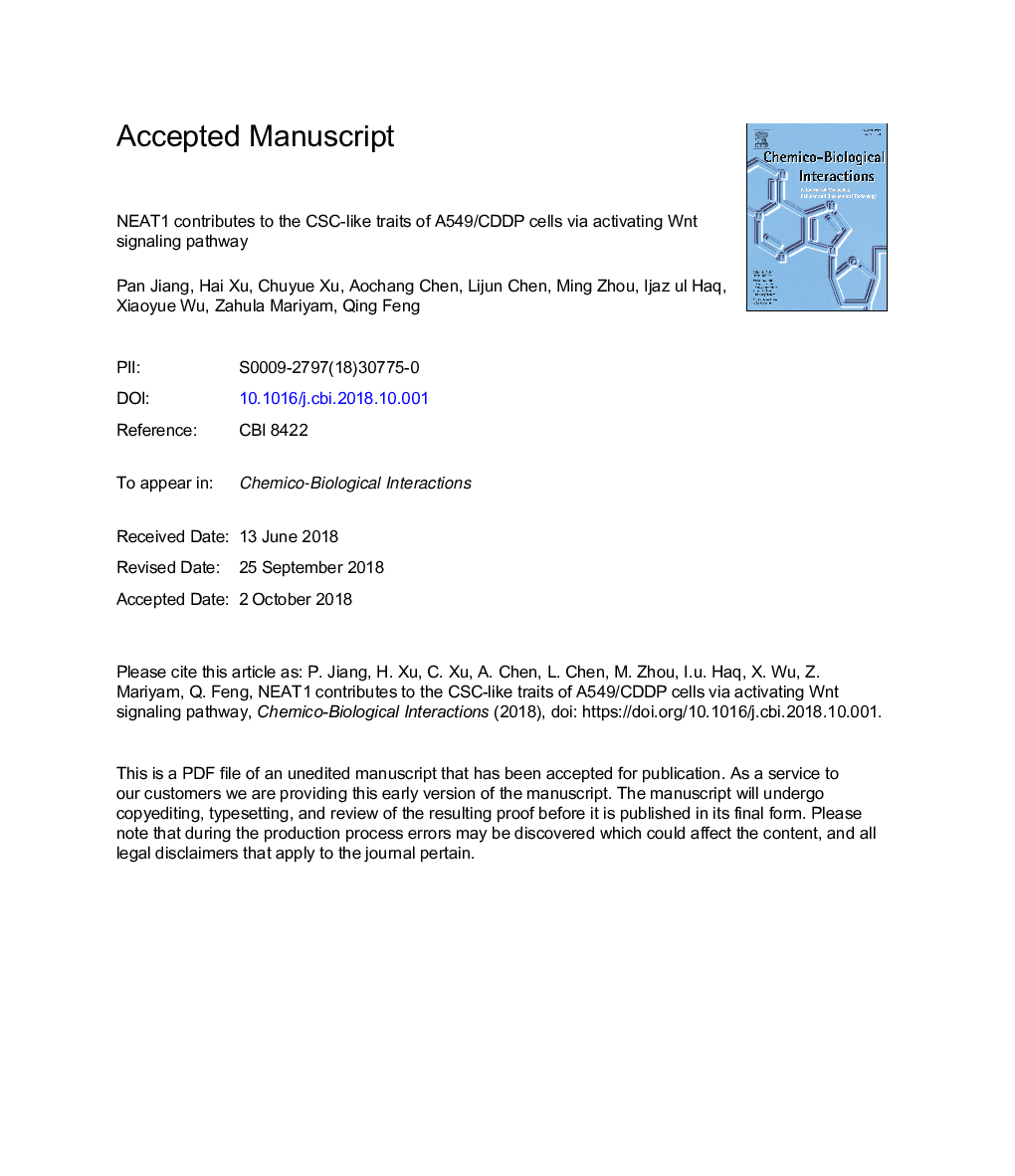| Article ID | Journal | Published Year | Pages | File Type |
|---|---|---|---|---|
| 11025684 | Chemico-Biological Interactions | 2018 | 31 Pages |
Abstract
Long non-coding RNAs (lncRNAs) have been identified to exert crucial roles in tumorigenesis and can serve as novel biomarkers for cancer therapy including lung cancer. Cisplatin is a first-line chemotherapeutic agent in non-small cell lung cancer (NSCLC), but the therapeutic effect is unsatisfactory, partly due to drug resistance. Emerging evidence showed that chemo-resistance is associated with acquisition of cancer stem cell (CSC)-like properties. Cisplatin resistance remains a major obstacle in the treatment of lung cancer, and its mechanism is still not fully elucidated. Meanwhile, CSCs have been involved in tumor metastasis, tumor recurrence and chemotherapy resistance. So far, the mechanism of nuclear enriched abundant transcript 1 (NEAT1) in modulating CSCs in lung cancer remains barely known. Therefore, we aimed to explore the correlation between NEAT1 and cancer stem cells in lung cancer. In our current study, we observed that CSC-like traits were much more enriched in cisplatin-resistant A549/CDDP cells. In addition, NEAT1 was obviously up-regulated in A549/CDDP cells compared with parental A549â¯cells. Knockdown of NEAT1 decreased the CSC-like properties of A549/CDDP cells through inhibiting tumor cell sphere volume, repressing CSC-like biomarkers levels and restraining CD44 positive cell ratios. Oppositely, overexpression of NEAT1 enhanced the stemness respectively. Moreover, it has been reported that Wnt pathway is implicated in many vital cellular functions including cancer stem cells. Here, it was exhibited that Wnt signal pathway was inactivated by knockdown of NEAT1 whereas activated by NEAT1 overexpression in A549/CDDP cells. Taken these together, it was indicated that NEAT1 could exert a novel biological role in NSCLC chemo-resistance.
Keywords
Related Topics
Life Sciences
Environmental Science
Health, Toxicology and Mutagenesis
Authors
Pan Jiang, Hai Xu, Chuyue Xu, Aochang Chen, Lijun Chen, Ming Zhou, Ijaz ul Haq, Xiaoyue Wu, Zahula Mariyam, Qing Feng,
